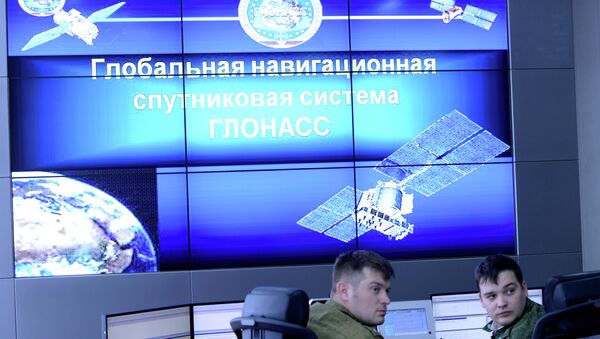MOSCOW, May 20 (RIA Novosti) – Two satellites of Russia’s Glonass navigation system deactivated Monday for maintenance are again fully functional, the Glonass System Control Center said Tuesday.
"According to the monitoring data, scheduled maintenance work on Glonass-M No. 738 and No. 733 is successfully completed, the spacecraft are used for their intended purpose," the center said.
Officials earlier said the two Glonass satellites would be deactivated for short-term maintenance work.
Twenty-four Glonass satellites are currently operational, enough to provide global coverage. In total, the fleet consists of 29 satellites. Four spacecraft are considered a back-up, and one is undergoing flight tests.
The Russian Federal Space Agency (Roscosmos) previously reported that computer crashes on board a few Glonass spacecraft were due to software issues. The problems arose during system tests, but have now been fixed.
Russian Deputy Prime Minister Dmitry Rogozin said last Tuesday the country intends to suspend the work of 11 ground-based facilities of the US Global Positioning System (GPS) located on Russian territory beginning June 1, and shut them down beginning September 1.
The move came as a response to a US refusal to set up a signal correction station for Russia’s Glonass system on US territory.
The Glonass network, which began operation in 1993, provides real-time positioning and speed data for surface, sea and airborne objects. Its accuracy is expected to be boosted to one meter (3 feet) when used within Russia by the end of the year. The Glonass network currently has 24 operational satellites, which is enough to provide global coverage, with the first overseas ground station launched in Brazil in February 2013.
Russia's full-scale plan for Glonass is to build 50 stations in several dozen countries across the globe. Last week, the Russian government approved bills to ratify space cooperation agreements with Nicaragua and Vietnam, which provide for the construction of Glonass stations.




